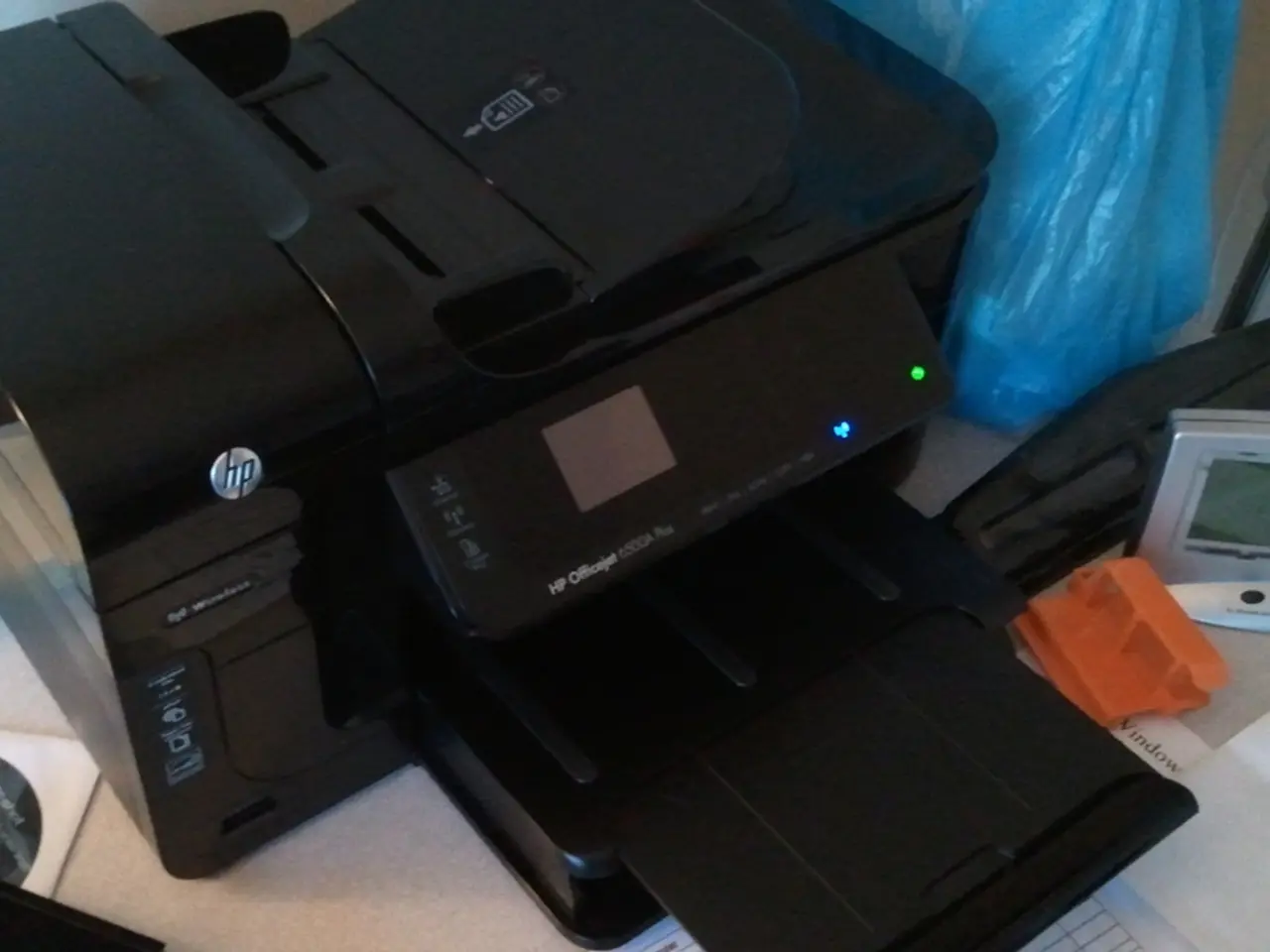Overcoming Excessive Information at the Workplace: 5 Strategies for Enhanced Concentration
In today's digital age, managing information overload at work is a common challenge for many professionals. The Federal Institute for Occupational Safety and Health (BAuA) offers valuable insights to help combat this issue.
According to BAuA, effectively managing digital overload involves strategies that prioritise mental health, physical activity, and communication culture.
Prioritising Mental Health
Regular workshops on resilience, mindfulness, and stress management can help employees cope better with the increased workload that digital tools create.
Integrating Physical Activity
Movement breaks and healthy routines during the workday boost the immune system, overall health, and well-being, while also fostering team spirit and communication.
Fostering Appreciative Communication
Cultivating a feedback culture where team members feel seen and heard encourages open exchange and genuine interest, leading to honest, constructive feedback that benefits both employees and the organization.
These approaches suggest that managing digital overload is as much about addressing the psychological and social environment as about handling the volume of information itself.
Limiting Availability
Where limiting availability is not realistic, professionals should at least limit their availability times in agreement with customers. Completely refraining from a work phone or business messenger apps on the private smartphone can be helpful in limiting availability.
Creating Digital Order
Limiting information overload can be achieved by disabling unnecessary notifications, unsubscribing from distribution lists, canceling unwanted newsletters, cleaning up electronic mailboxes, deleting outdated information, and using out-of-office assistants. Openly communicating about receiving unnecessary or superfluous information to the sender is important.
Focusing on One Task at a Time
Professionals who want to manage their time effectively should focus on one task at a time and avoid multitasking.
Structuring Working Time
Professionals should structure their working time well and prioritise tasks, planning time slots to fully dedicate themselves to a task without distraction. Those who work from home should pay particular attention to turning off work devices during breaks and after work.
Synchronous Communication
Synchronous forms of communication (meetings or phone calls) can be more goal-oriented than email exchanges, according to BAuA. Formulating clear expectations for recipients can increase the quality of information.
Setting Clear Goals
BAuA recommends that professionals should set clear goals for their work and regularly review their progress to stay on track. Taking breaks and engaging in physical activity can help reduce stress and improve focus, according to BAuA.
Limiting Information Flow
Ignoring further information flow during dedicated time slots can help improve focus and productivity. Professionals should limit their availability by drawing clear boundaries between work and leisure time.
By implementing these strategies, professionals can better manage digital information overload at work, leading to improved mental health, increased productivity, and a healthier work-life balance.
[1] Source: BAuA Tips to Counteract Difficulty in Keeping Track of Information at Work. (n.d.). Retrieved April 28, 2023, from https://www.baua.de/EN/Themen/Arbeitswelt/Arbeitsumwelt/Information-overload/information-overload-at-work/index.html
Read also:
- Top-Notch Weed Killers for Fences in 2025: Efficient Boundary Management Solutions for a Clean Fence Line
- Jellyfish invade coastlines, forcing closure of nuclear power plant: jellyfish predicament
- Transforming Sustainable Life: Tech Startup Transforms Gardening Through Digitalization of Horticulture and Enabling Gardeners with an Intelligent Platform
- A Kaiser Permanente doctor recalls the hurdles she faced in her journey to professional success during Black History Month, hoping to inspire others to strive for greatness.






